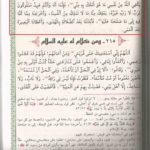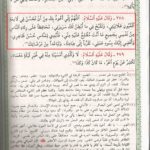Introduction
In this article, we shall take a look at the status of Ali through his own comments about himself. It is well established that his infallibility was not accepted by the people of his time. No proof is required to establish that the Sahaba, especially the three caliphs, A’isha, Talha, Al-Zubair, the people of Basra, then Mu’awiyah, and the people of Al-Sham, did not believe in his infallibility. However, what might be shocking to Shias is that his own followers did not accept this either. We find in Sermon #69 that the people of Iraq, the companions of Ali themselves, did not believe in his fallibility. He rebuked them saying, “I was told that you say, ‘Ali lies.’ May Allah destroy you!”
Fallibility of Ali
Below, we have hand-picked some of the words of Ali to show that he himself did not believe that he was infallible:
 In Sermon #76 he says, “O My God! Forgive me what Thou knowest about me more than I do. If I return (to the sins) then forgive me again. My God forgive me what I had promised to myself but Thou didst not find its fulfillment with me. My God forgive me that with what I sought nearness to Thee with my tongue but my heart opposed and did not perform it. My God forgive me winkings of the eye, vile utterances, desires of the heart and errors of speech.”
In Sermon #76 he says, “O My God! Forgive me what Thou knowest about me more than I do. If I return (to the sins) then forgive me again. My God forgive me what I had promised to myself but Thou didst not find its fulfillment with me. My God forgive me that with what I sought nearness to Thee with my tongue but my heart opposed and did not perform it. My God forgive me winkings of the eye, vile utterances, desires of the heart and errors of speech.”
Shias often explain away such statements by saying that these were said out of humbleness, however, the sermon clearly shows that Ali did commit a sin and fears returning to it out of humane weakness.
 He says in Sermon #214, “Therefore, do not abstain from saying a truth or pointing out a matter of justice because I do not regard myself above erring. I do not escape erring in my actions but that Allah helps me (in avoiding errors) in matters in which He is more powerful than I. Certainly, I and you are slaves owned by Allah, other than Whom there is no Lord except Him. He owns our selves which we do not own. He took us from where we were towards what means prosperity to us. He altered our straying into guidance and gave us intelligence after blindness.”
He says in Sermon #214, “Therefore, do not abstain from saying a truth or pointing out a matter of justice because I do not regard myself above erring. I do not escape erring in my actions but that Allah helps me (in avoiding errors) in matters in which He is more powerful than I. Certainly, I and you are slaves owned by Allah, other than Whom there is no Lord except Him. He owns our selves which we do not own. He took us from where we were towards what means prosperity to us. He altered our straying into guidance and gave us intelligence after blindness.”
The above also clearly shows that Ali believed that he has become guided after he was once astray. He says this as he requests his followers to point out truth and justice to him for he is not free from error.
 Also, in Saying #278, he says, “O’ Allah, I seek your protection from this that I may appear to be good in the eyes of the people whilst my inward self may be sinful before You, and that I may guard myself (from sins) only for show before the people although You are aware of all about me. Thus, I appear before the people in good shape although my evil deeds are placed before You. This means achieving nearness to Your creatures but remoteness from Your pleasure.”
Also, in Saying #278, he says, “O’ Allah, I seek your protection from this that I may appear to be good in the eyes of the people whilst my inward self may be sinful before You, and that I may guard myself (from sins) only for show before the people although You are aware of all about me. Thus, I appear before the people in good shape although my evil deeds are placed before You. This means achieving nearness to Your creatures but remoteness from Your pleasure.”
Conclusion
The belief in the infallibility of Ali is unjustified and conflicts with his own statements in Nahjul Balagha. We all know that Shias will twist and turn in order to interpret such reports to refer to his modesty and humbleness, but in the end of the day, these are the clear and apparent words of Ali that do not require any interpretation. How can the Most Merciful allow His appointed Imam to confuse the people with such statements? Surely, if Ali was an infallible, then this confusion he is causing is itself a sin. Let Shias come forth and solve this paradox.

Leave a Reply